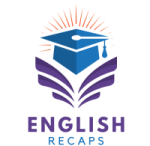Thinking about the right academic path for your child can feel overwhelming. With so many options, narrowing it down to just one curriculum might raise more questions than answers. If you’re considering international education in Bangalore, two programs often come up—IB and IGCSE.
Both programs offer different learning styles and goals. Many international schools in Bangalore provide one or both, depending on their teaching approach and long-term student development model. Exploring what sets them apart can help you decide based on what suits your child’s strengths and future goals.
Symbols have become a language of their own on social media. They help convey emotions, emphasize points, and create visually appealing posts. People use symbols to stand out in the crowded social media landscape. Symbols can transform ordinary text into engaging content.
Focus Areas and Learning Styles
IB programs emphasise inquiry-based learning and inter-disciplinary thinking. Students are encouraged to explore ideas deeply, often through self-directed projects and group collaboration. While IB promotes creative thinking and reflection. It helps learners develop independence and confidence in their academic journey.
IGCSE follows a more subject-centred format. Learners focus on specific topics, guided by clear syllabi and assessments. It provides clarity through structured content and defined outcomes. Choosing between these depends on whether your child thrives in independent exploration or prefers detailed guidance.
Assessment Methods and Student Engagement
IB assessments combine coursework, internal assessments, and final exams, with a strong emphasis on projects and reflective writing. Evaluation is ongoing and includes multiple formats that test understanding beyond memorisation. This structure supports continuous learning and strengthens long-term retention.
IGCSE leans more toward traditional testing. Students take subject-wise exams, with scores based on how well they demonstrate learned concepts. Though coursework may be included in certain subjects, exams carry the most weight. This system works well for learners who excel in test preparation and structured study schedules.
Grade Levels and Progression
IB programs are usually offered from the early years to high school. In most cases, the Middle Years Programme (MYP) leads into the Diploma Programme (DP) for grades 11 and 12. This makes IB a continuous journey across grade levels, with alignment from primary to pre-university education.
IGCSE is typically introduced in grades 9 and 10 and is followed by A-levels or other qualifications. It’s considered a foundation for advanced studies, especially in science and mathematics. The choice between these depends on how early you want your child to begin subject specialisation.
Subject Choices and Academic Breadth
IB encourages a balanced approach across disciplines. Students must select subjects from groups that include language, sciences, humanities, and arts. They also complete core components like the Extended Essay and Theory of Knowledge, which develop analytical and critical thinking.
IGCSE allows greater subject flexibility. Students can choose from a wide range, often deciding how many subjects to take based on interests or career plans. It’s suitable for children who show strong aptitude in specific areas and want to build on that strength.
College Preparation and Global Recognition
IB is globally recognised for its emphasis on academic rigour and research skills. It’s often associated with strong university preparation, particularly for programs that value well-rounded applicants. It also encourages students to think critically and make real-world connections across subjects.
IGCSE is equally respected and forms a strong base for those planning to pursue specialised university tracks. When followed by A-levels or equivalent programs, it supports applications to institutions around the world. Both paths are accepted by universities but may align differently with specific career fields.
Choosing between IB and IGCSE isn’t about which one is better—it’s about finding what suits your child’s pace, preferences, and future ambitions. Many international schools in Bangalore offer environments that allow young learners to thrive, whether they prefer open inquiry or structured learning. As you explore your options, consider what makes your child feel most inspired—and you’ll be closer to making the right choice.


